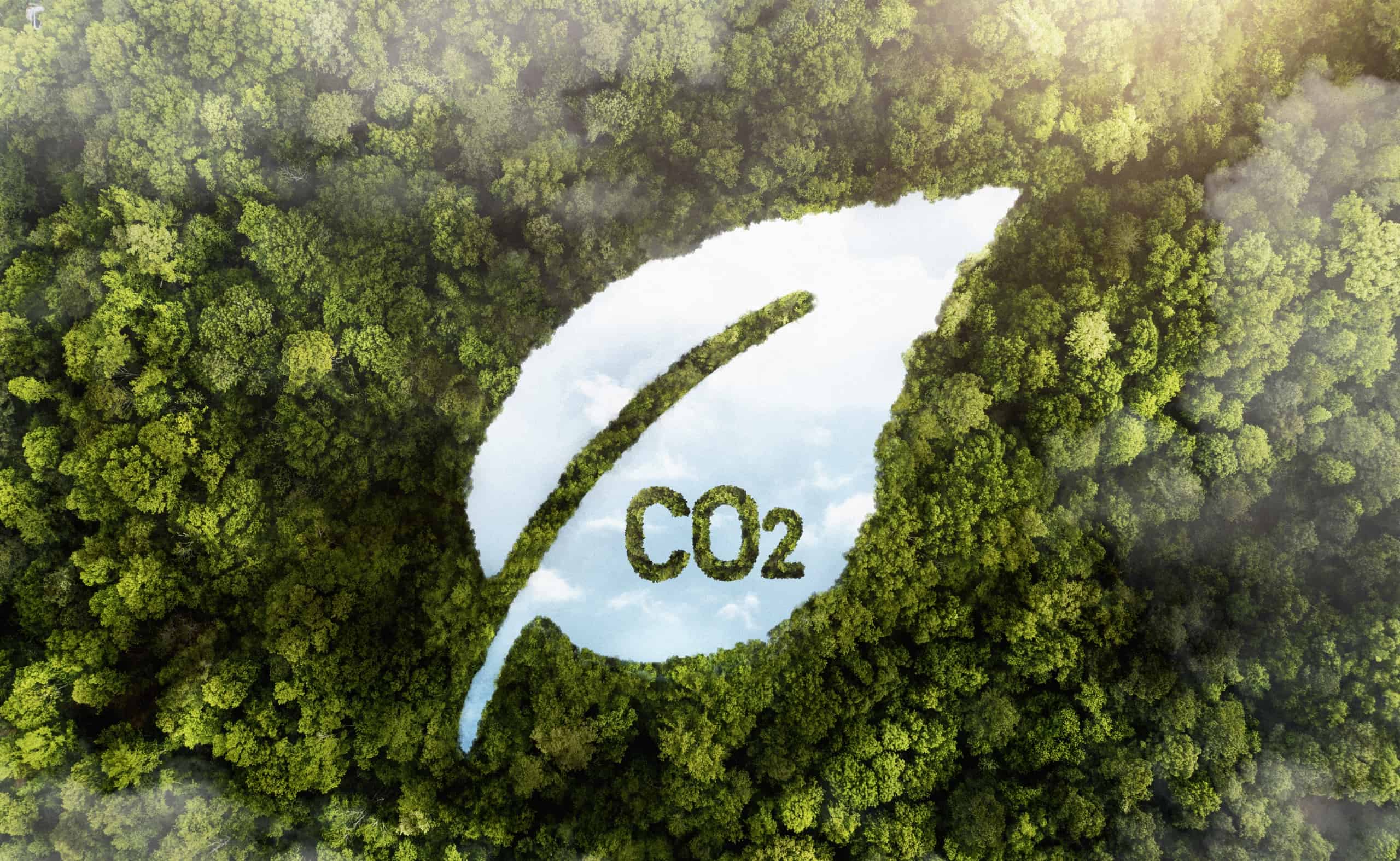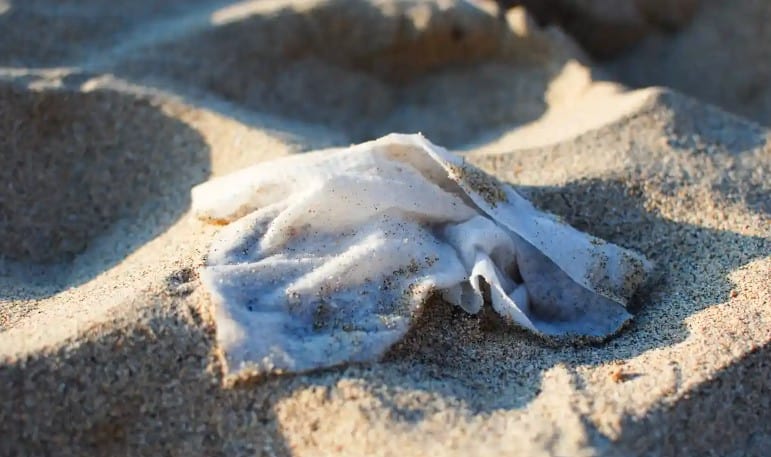1. Resource Intensive Production
The manufacture of conventional wet wipes is primarily dependent on synthetic fibers like polyester and polypropylene, which are sourced from petroleum. Petroleum is a non-renewable resource, and the mining and processing of these elements are not only resource-intensive but also ecologically costly. The wet wipes manufacturing process requires a large amount of energy, resulting in considerable carbon emissions.
The growing worldwide awareness of environmental concerns makes it economically unfeasible to depend on non-renewable resources. Wet wipes raw material costs linked to petroleum products are prone to market fluctuations and are expected to rise due to resource scarcity and increasing environmental laws. Additionally, the environmental consequences linked to conventional manufacturing methods, such as habitat loss and pollution, might result in additional indirect expenses such as environmental remediation and regulatory adherence.
Transitioning to sustainable materials such as cotton, bamboo, or other biodegradable fibers may greatly decrease environmental damage. These materials are sustainable, energy-efficient, biodegradable, and help lower pollution and waste management expenses in the long run. Wet wipes manufacturers may reduce environmental harm and adapt to changing market needs and regulations by using eco-friendly raw materials, promoting economic resilience and sustainability.
2. Water and Chemical Use
In the manufacturing of traditional wet wipes, the utilization of water and chemicals is large and offers various issues. This method normally includes soaking the non-biodegradable fibers in different chemical solutions to increase qualities including softness, strength, and resistance to germs. These compounds may include preservatives, surfactants, and moisturizers, all of which might have detrimental environmental implications if not controlled effectively.
The water utilized in these processes not only acts as the medium for these chemicals but is also used in large amounts for washing and rinsing the fibers throughout manufacture. Such excessive water use might pose challenges, particularly in regions experiencing water shortages. Moreover, the wastewater created from this procedure, which includes chemical residues, needs treatment before it can be properly disposed of. Inadequate treatment of this effluent may result in the contamination of nearby water sources, impacting aquatic ecosystems and even contaminating human water sources.
Adopting environmentally sustainable manufacturing methods may help alleviate these problems. Technologies that decrease the need for harsh chemicals or recycle water during manufacturing may greatly lessen the environmental impact. Moreover, using fewer toxic compounds during manufacturing might minimize the need for elaborate wastewater treatment and lower the likelihood of environmental pollution.
Implementing these environmentally friendly procedures conserves water resources, reduces chemical use, ensures compliance with stringent environmental laws, and increases customer preference for sustainable goods. This method may result in cost savings by decreasing water and chemical use, reducing treatment expenses, and preventing possible fines for environmental breaches.
3. Waste Management Challenges
The waste management difficulties linked to conventional wet wipes production are significant and complex, mainly because of the non-biodegradable components used. Synthetic fiber wet wipes, such as those manufactured from polyester and polypropylene, are not readily biodegradable, causing substantial challenges in waste management.
The significant issue at hand is the impact of these non-biodegradable wipes on landfill garbage. Synthetic wet wipes, when disposed of, may take hundreds of years to degrade, therefore occupying significant landfill areas and adding to the waste management challenge. Furthermore, these wipes are often disposed of by flushing them down toilets, despite being advised against doing so. This tendency results in the creation of substantial and durable obstructions in sewage systems known as “fatbergs,” which are expensive and require a significant amount of effort to eliminate.
These obstructions may result in significant harm to public sewage systems, necessitating costly repairs and upkeep. Consumers usually bear the price of these repairs via increased utility bills and municipal taxes. Blockages may cause sewage overflows, posing significant health concerns to communities and contaminating local waterways, hence escalating cleaning and environmental remediation expenses.
To tackle these waste management difficulties, we need to transition to sustainable wet wipes manufacturing processes by using biodegradable materials that decompose rapidly and safely in the environment. Implementing these improvements decreases the strain on municipal garbage systems and helps firms comply with growing regulatory demands to minimize environmental impacts. Innovating in material selection and promoting responsible disposal methods may greatly reduce the environmental and economic impacts of waste management for wet wipes manufacturers.
4. Regulatory Risks
The wet wipes sector confronts substantial regulatory concerns, especially as governments globally tighten environmental standards and impose more strict rules to fight pollution and waste. Wet wipes manufacturers that continue to depend on old, non-biodegradable materials and techniques are increasingly in danger of incurring legal and financial ramifications.
Increasingly Stringent Regulations
Many nations are moving toward stronger rules on single-use items and non-biodegradable materials. For example, the European Union has been at the forefront of implementing steps to limit plastic waste, which includes bans on some single-use plastic goods. Wet wipes, typically containing plastic fibers, came under scrutiny under such rules. Failure to comply with these new requirements may result in fines, penalties, and even bans on items that do not satisfy environmental standards.
Financial Implications
The financial ramifications of non-compliance might be severe. Fines and penalties may directly harm a wet wipes manufacturer’s bottom line, but the indirect expenses, such as the need to reformulate goods or rethink production processes, can be much more important. Additionally, wet wipes manufacturers can face litigation or legal proceedings from customers and environmental organizations, further raising the financial stakes.
Market Access and Competitive Disadvantage
Ignoring regulatory changes might potentially lead to a competitive disadvantage. As more wet wipes manufacturers embrace sustainable practices and produce goods that meet new rules, those who do not maintain pace may find themselves barred from particular marketplaces. This restriction may be especially harmful in places like Europe and North America, where customers are increasingly demanding ecologically friendly items.
Utilizing Proactive Compliance for Competitive Advantage
On the other hand, wet wipes manufacturers who take proactive steps to meet or beyond regulatory standards may use this compliance to gain a competitive advantage. Wet wipes manufacturers may improve their brand image, appeal to environmentally sensitive customers, and access new market prospects by demonstrating their dedication to sustainability and regulatory compliance. Being proactive not only reduces risks but also fosters innovation, resulting in the creation of innovative, environmentally friendly goods that attract a wider range of customers.
Environmental concerns are leading to more stringent regulations and requirements in the regulatory environment for wet wipes production. Wet wipes manufacturers must keep up with legislative changes and incorporate sustainable practices into their operations to ensure long-term survival and success in a continually changing market.
5. Consumer Preferences Shifting
Consumer tastes shifting towards sustainable and eco-friendly goods are dramatically changing the wet wipes business. Consumers are seeking items that match their ideals of sustainability and responsible consumption due to the increased environmental awareness.
Rising Demand for Sustainable Products
Modern customers are more knowledgeable and attentive to the ecological consequences of their buying decisions. The demand for items created from sustainable, renewable, or recycled resources is increasing. Consumers are looking for biodegradable, compostable, or natural fiber options for wet wipes. Products with these characteristics are usually favored over conventional solutions that add to pollution and waste.
Readiness to Pay Higher Prices
Studies show that some customers are prepared to pay more for ecologically friendly items. Youth demographics, especially Millennials and Gen Z, show a significant preference for sustainability. Wet wipe manufacturers may benefit from consumers’ desire to pay more by creating goods that align with eco-friendly standards. This strategy can attract environmentally conscious consumers and perhaps boost profit margins.
Effects on Brand Loyalty and Perception
Wet wipes manufacturers that disregard changes in customer tastes are in danger of harming their brand image and losing market share to more environmentally-friendly rivals. On the other hand, wet wipes manufacturers that adopt environmentally friendly practices and openly advertise their dedication to sustainability often see increased customer loyalty. Consumers are inclined to trust and stay loyal to businesses that align with their views and values. Adapting to shifting tastes is essential for retaining customer loyalty and appealing to new customers who value environmental concerns.
Transparency and Education’s Significance
Being transparent about product components and production procedures is essential for appealing to environmentally aware consumers. Wet wipes manufacturers that provide transparent details about the sustainability of their goods and efforts to minimize environmental harm might establish stronger connections with customers who prioritize honesty and integrity. Moreover, informing customers about the advantages of sustainable goods and appropriate disposal techniques may boost brand loyalty and promote greater environmental consciousness.
Consumer preferences shifting towards sustainability are not just a temporary fad but a substantial movement that is causing changes in several sectors, including wet wipes manufacturing. For wet wipes manufacturers, this transition poses both a problem and a chance for advancement. By integrating their goods and activities with sustainability and environmental responsibility, companies may attract a larger market share and establish themselves as pioneers in a more sustainable future for the sector.
6. Long-term Brand Reputation and Market Position
The long-term brand image and market position of wet wipes manufacturers are increasingly affected by their commitment to environmental sustainability. In an age when customers and stakeholders are increasingly environmentally sensitive, a company’s reputation for sustainability may greatly affect its entire brand perception and competitive status.
Sustainability as a Core Brand Value
For wet wipes manufacturers, incorporating sustainability into their core business strategy is no longer optional but a must for retaining relevance and competitiveness in the market. Companies that are viewed as environmentally responsible tend to have a better brand reputation, which may translate into increased customer loyalty and a more favorable public image. This reputation for sustainability may be a crucial differentiator in a competitive market, putting a firm apart from rivals who may still depend on old, less sustainable techniques.
Enhanced Customer Loyalty
Customers nowadays are searching for companies that not only address their immediate requirements but also connect with their ideals. By exhibiting a commitment to sustainability, wet wipes manufacturers may build stronger ties with their consumers, encouraging loyalty that is founded on shared principles of environmental stewardship. This loyalty may lead to repeat business, improved client retention rates, and favorable word-of-mouth, which are vital for long-term success.
Attracting Investors and Partners
A good reputation for sustainability may also make a wet wipes manufacturer more desirable to investors and commercial partners who are increasingly considering environmental, social, and governance (ESG) elements in their decision-making processes. Investors are more willing to support firms that exhibit responsible environmental practices and a commitment to long-term sustainability since these elements are considered manufacturers of forward-thinking management and long-term viability.
Mitigating Risks
Wet wipes manufacturers that overlook environmental sustainability in their product design and manufacturing processes face considerable risks, including regulatory fines, customer outrage, and possible boycotts. These hazards might undermine a company’s market position and financial stability. Conversely, wet wipes manufacturers that proactively handle sustainability concerns may reduce these risks, assuring a more secure and promising market position.
Driving Innovation
A dedication to sustainability may promote innovation inside the company. As wet wipes manufacturers work to lessen their environmental effects, they may create new, greener technologies or uncover more efficient manufacturing procedures that not only help the environment but also lower costs and enhance product quality. This unique edge may further increase a company’s reputation and attractiveness in the market.
For wet wipes manufacturers, the influence of sustainability on brand image and market position is considerable. Embracing environmental stewardship not only increases a company’s image and client base but also positions it as a leader in a transforming business scenario. In the long term, sustainable practices lead to a stronger, more resilient brand that is capable of flourishing in an increasingly eco-conscious world.







